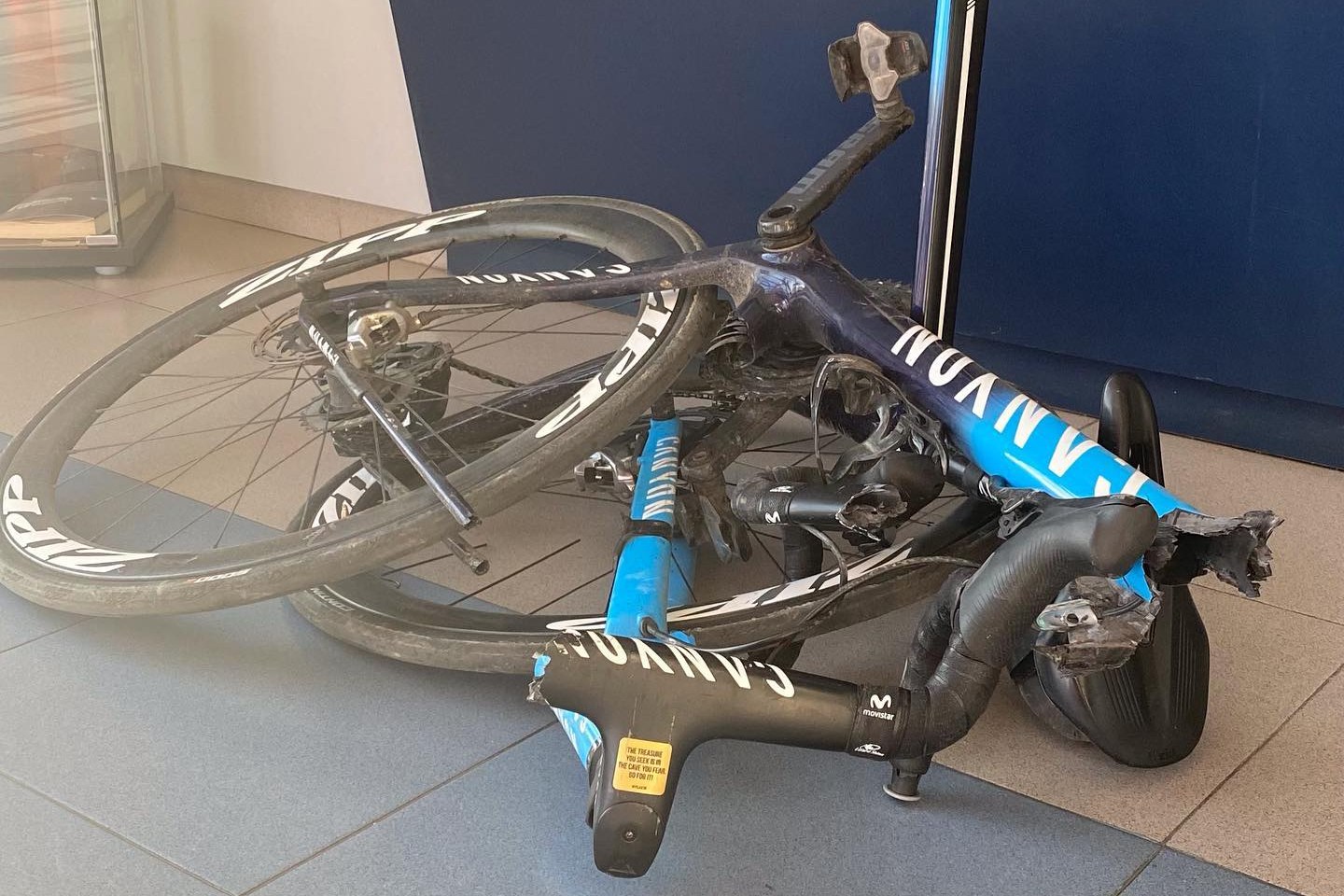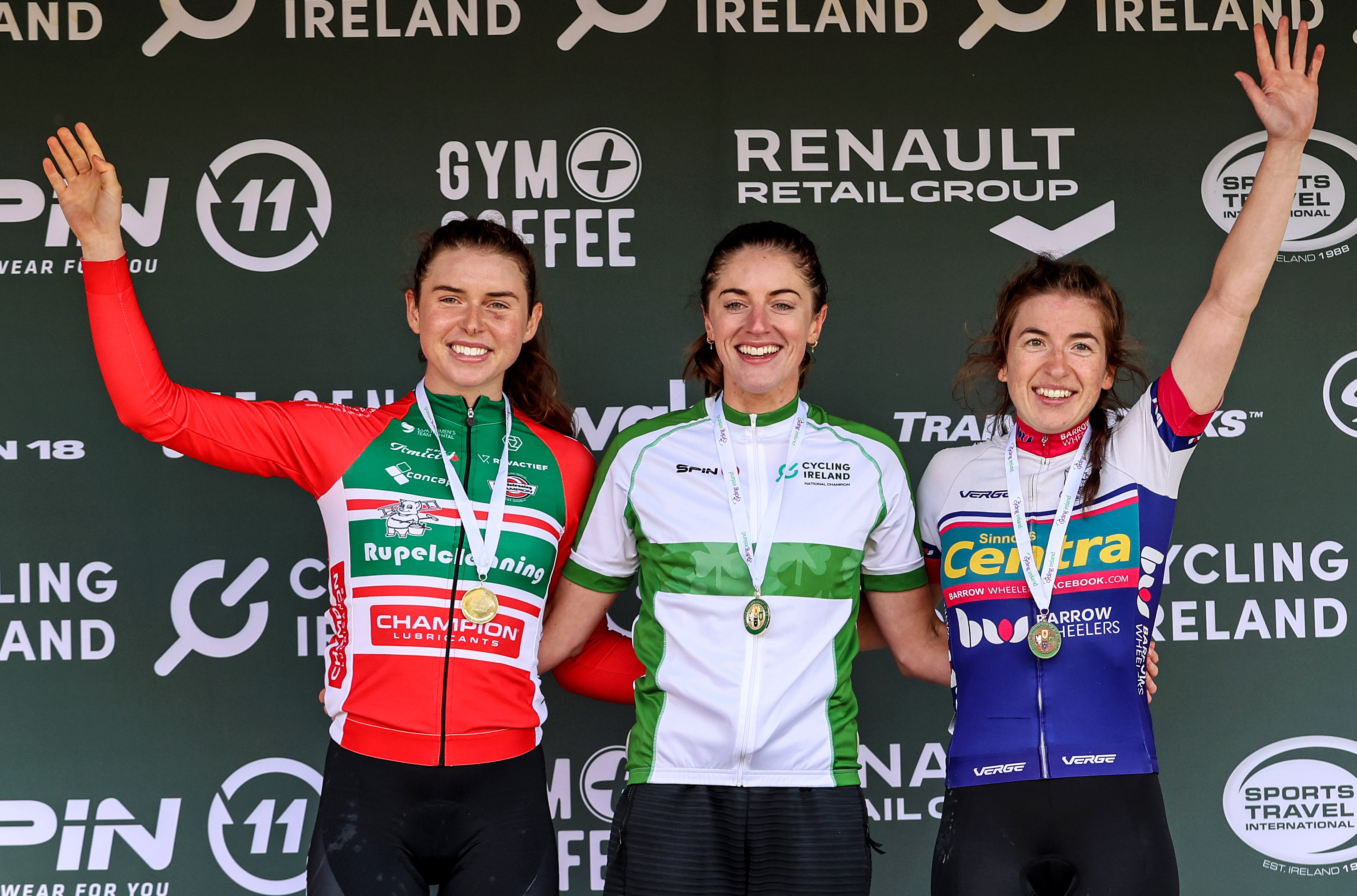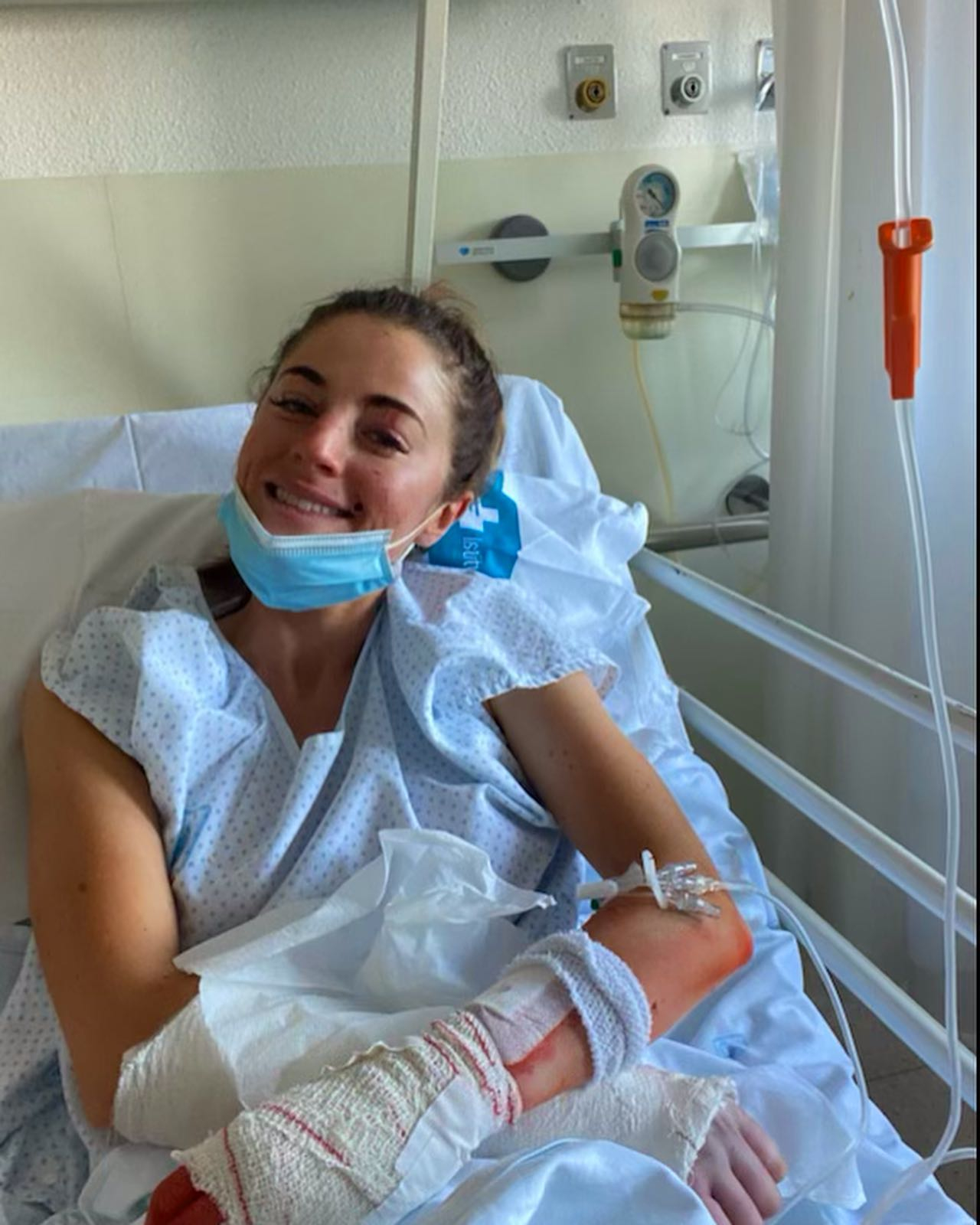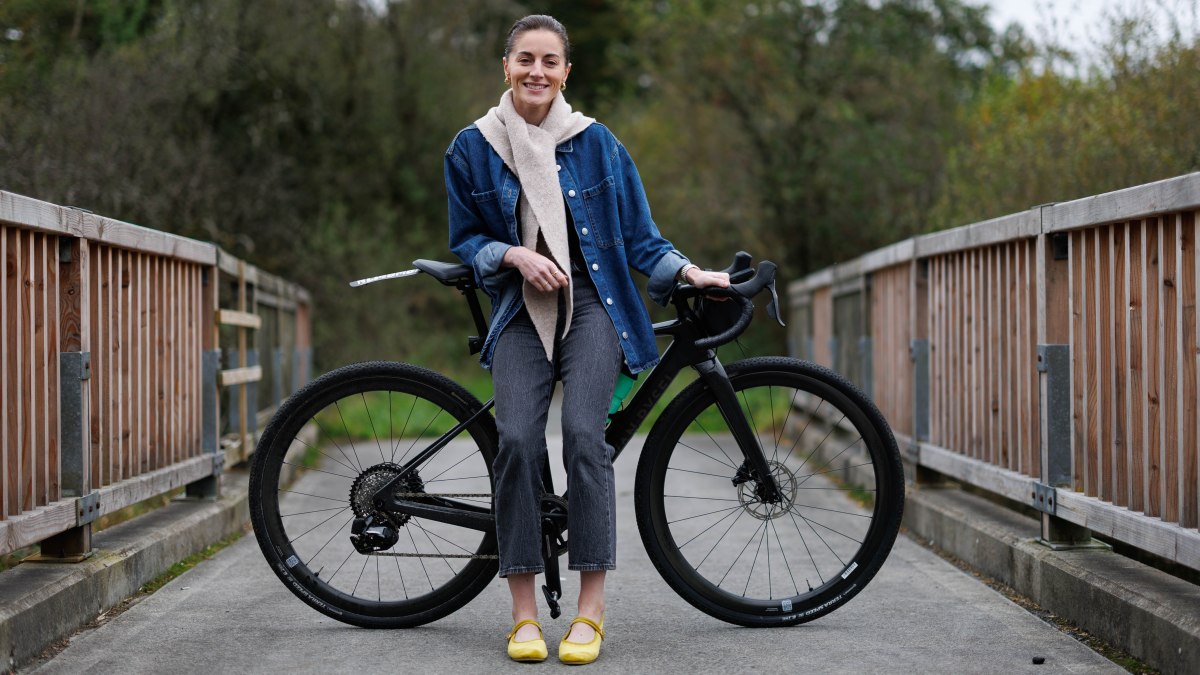Imogen Cotter used to spend her days scanning the faces of strangers in search of the man who almost killed her. The one-time professional cyclist’s hope was to find him, “scream at him”, and to insist that he acknowledge the devastation he caused by ending her racing career.
“I used to find myself walking around Girona and I was always trying to see his face,” she said. “I was waiting for the moment when I would see him so I could go over and say, ‘Do you know what you did? Are you even aware of how difficult you have made my life?’”
But after moving back to Ireland and settling into a university course, she knows the plan that once consumed her would have brought no peace. She now hopes their paths never cross.
It was four years ago last week that Cotter stood on a podium to celebrate her career-defining victory at the Irish National Road Race Championships. That win had set her on a glittering path, signing with professional team Plantur-Pura for the 2022 race season and moving to Spain to elevate her training.

The wreck of Imogen Cotter’s bike after a motorist hit her head on while he was travelling at speed on the wrong side of the road
But 25 days after she arrived, a head-on collision with a driver travelling at speed on the wrong side of the road rewrote everything. The near-fatal crash, which has a close to zero survival rate, left her with a fractured femur, ruptured tendons and shattered patella. She had to undergo five surgeries and she is waiting for another operation. She still suffers from debilitating post-traumatic stress disorder that haunts her when she sees a police chase on television or hears an engine roar.
The 19-year-old motorist was never charged with any offence. He never apologised and was back on the road weeks after the collision. With some “radical acceptance”, Cotter, 32, has let the rage go. She is putting the foundations of a new career in place as she begins a master’s at the University of Limerick.
“Two weeks later his car was repaired and he was out driving as normal,” she said. “I was in hospital but I actually went and checked myself out too early, which was a mistake. I was fainting after that, I couldn’t stand up, I couldn’t feed myself.”

Imogen Cotter crosses the line to win the Cycling Ireland National Road Championships in Wicklow in 2021 and, below, on the podium with Megan Armitage and Linda Kelly
BRYAN KEANE/SHUTTERSTOCK EDITORIAL

BRYAN KEANE/SHUTTERSTOCK EDITORIAL
As she became fixated on the circumstances, she carefully scanned the police report to gather information about the man who would never even try to reach her. She aimed to confront him and “scream”. She traced photographs of him, learning too the faces of those around him, and one day she came across two she recognised: the driver’s parents.
Cotter, 32, said: “I saw them and I went over and I said, ‘I think you know who I am.’ They completely denied knowing anything.” When she showed them her scars to make the point, the mother’s response became something of a turning point.
“I’ll never forget it,” Cotter said. “She pulled up her leggings and showed me her knee because she’d obviously had some kind of surgery and there was a small scar there. I just realised I’m never going to see eye to eye with these people.”
That moment was the beginning of the end for her need for an apology. She said: “I thought an apology would be really healing for me. But from therapy and journalling about it a lot … I realised that it actually wasn’t that important to hear from the driver at all.

Imogen Cotter posted a picture of herself in hospital. She was lucky to be alive but had a fractured femur, ruptured tendons and shattered patella
“I was just able to deal with it myself, package it up myself and that was healing in itself. And now at this stage I would hate to see him. I feel that I’ve managed to close that chapter of my life and the side of wanting to see him.”
Yet the impact is seared on her mind. She said: “Everything was so vivid — the colours, the noise and just that image of seeing the corner of this car coming at me. It’s a terror I can’t put into words.”
Everyday sounds can be triggering, and this happened again last month when a friend to her and her triathlete partner was killed in a cycling crash. “It opened up everything again for me,” Cotter said quietly. “It’s unfortunately the world that we’re in as cyclists — we are exposed to a lot of people having bad accidents.”
Physically, she lives with the consequences every day. She faces one more round of surgery and manages early-onset arthritis in her knee and wrist. She said: “When you have chronic pain you have to adapt and say, ‘OK this is my new normal.’ I actually can’t remember what it’s like to not have those pains.”
After stepping back from professional racing in April last year, she feels she is lucky to have found a new perspective. She had once been sceptical of the stories of people in the “near-death club”, who have escaped with their lives from close to fatal experiences, who find joy in the small things. Now she understands.
“It’s true,” she said. “Just last night I was driving home and the sun was beautiful, setting in the sky, and I just thought, ‘Oh my God, I’m so happy I’m alive.’ Some moments really do stop me in my tracks.”

Imogen Cotter says that like many survivors, she is finding the joy in small things, notably Co Clare sunsets
EAMON WARD FOR THE SUNDAY TIMES
This newfound gratitude is coupled with a desire to push for change when it comes to safety for cyclists on Ireland’s roads. She told of listening intently to the budget details last week in which €360 million was allocated for active travel and related infrastructure, which she believes comes at a time when the country lags behind in terms of investment.
Cotter said the issue has become unnecessarily divisive, adding: “Cyclists are the only group of road users for whom road deaths haven’t dropped since 2010. We still obviously have a lot of work to do.
“I’m so happy to see people commuting to work, girls riding their bikes to school, all of that is incredible. But you’ve got cycle paths that just end out of nowhere; cycle paths are just protected by a piece of paint on the road, and paint is not protective.
“You need a physical separation from cars. If you look at places like the Netherlands, like Vancouver, they have physically separated bike lanes. And more people are riding, and fewer people are dying. This area needs total reform also in terms of looking at how we punish drivers who kill people.
“We’re not giving them adequate punishment. We’re giving them a little slap on the wrist or you’re giving them a suspended sentence. I think drivers need to be aware of when they get behind the wheel of their car, it can either be a safe transport option or it can be a weapon.
“And if you’re going to go on your phone, you’re deciding it’s a weapon. The person that you’re trying to get past on the road is not just like a random object that you need to overtake. That’s a real person just like you in your car but they’re on a little carbon frame.”
For now, living at home, Cotter is concentrating on her degree in journalism and digital communication. She said wanted to get involved in broadcasting, explaining that “all of a sudden” she had to choose a new path.
She said: “It’s given me new direction and determination.”

